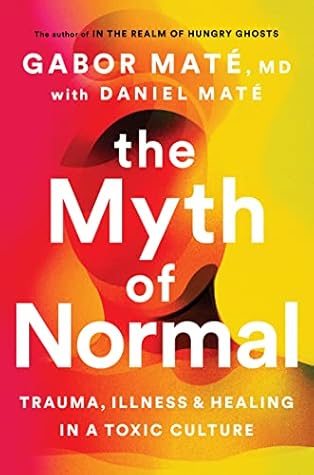More on this book
Community
Kindle Notes & Highlights
by
Gabor Maté
Read between
July 9 - July 25, 2024
The fact that millions of people share the same vices does not make these vices virtues, the fact that they share so many errors does not make the errors to be truths, and the fact that millions of people share the same forms of mental pathology does not make these people sane. —Erich Fromm, The Sane
Our concept of well-being must move from the individual to the global in every sense of that word.
Whether we realize it or not, it is our woundedness, or how we cope with it, that dictates much of our behavior, shapes our social habits, and informs our ways of thinking about the world.
As I use the word, “trauma” is an inner injury, a lasting rupture or split within the self due to difficult or hurtful events. By this definition, trauma is primarily what happens within someone as a result of the difficult or hurtful events that befall them; it is not the events themselves. “Trauma is not what happens to you but what happens inside you” is how I formulate
Trauma, until we work it through, keeps us stuck in the past, robbing us of the present moment’s riches, limiting who we can be.
They both represent a fracturing of the self and of one’s relationship to the world.
As Peter Levine aptly points out, “Certainly, all traumatic events are stressful, but not all stressful events are traumatic.”
An event is traumatizing, or retraumatizing, only if it renders one diminished, which is to say psychically (or physically) more limited than before in a way that persists.
Not knowing how or what one feels, on the other hand, is a sure sign of disconnect from the body.
Note, too, that “treatable” is a far cry from “healable”—which says less about the nature of addiction than about the medical system’s failure to understand it.
Ask not why the addiction, but why the pain.
Addiction is a complex psychological, emotional, physiological, neurobiological, social, and spiritual process. It manifests through any behavior in which a person finds temporary relief or pleasure and therefore craves, but that in the long term causes them or others negative consequences, and yet the person refuses or is unable to give it up. Accordingly, the three main hallmarks of addiction are short-term relief or pleasure and therefore craving; long-term suffering for oneself or others; and an inability to stop.


